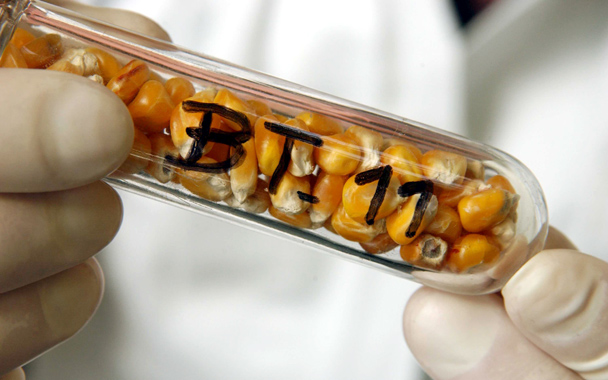Face it, if you live in the United States, you eat genetically engineered (GE) corn or food derived from the stuff. With bioengineered seeds accounting for as much as 85 percent of the corn crop in this country, it’s all but impossible to avoid in one form (on the cob) or another (sweetener for soft drinks).
Yet none of our regulatory agencies required long-term animal feeding studies before allowing all that test-tube corn to enter our food supply, according to the Center for Food Safety, and much of the short-term research that has been done was sponsored by the biotech companies that stood to profit from GE crops.
Which is why it was particularly chilling late last week to read the results of an experiment that was both long term and not conducted under the auspices of a big chemical company.
Dr. Jurgen Zentek, a professor at the University of Veterinary Medicine Vienna, reported that he fed one group of laboratory mice traditional corn and another group GE corn made by the Monsanto Company. The GE crop is bred to survive being sprayed by herbicide and to produce its own insecticide. The mice maintained their diets for 20 weeks, long enough to produce four litters of offspring.
Zentek found that the mice who dined on modified corn had fewer litters, fewer offspring, and more instances of complete infertility than those receiving a conventional diet. Not only that, but the infertility of the GM-corn-fed rodents became more pronounced with each passing litter.
Zentek said that further studies to corroborate his results were “urgently needed.”
The Center for Food Safety went one step further, calling for a moratorium on GE foods until more studies are done. (It’s not that hard. Hawaii just banned cultivating genetically modified coffee.) “This meticulous study suggests that a popular type of genetically engineered corn may harbor fertility-reducing substances,” said Bill Freese, science policy analyst at the center in a press release. “It’s no surprise to us that U. S. regulators did not catch this. The FDA must stop letting biotech companies self-certify their GE crops as safe, and instead establish strict, mandatory testing requirements, including long-term animal feeding trials, for every GE crop.”
Unfortunately, at today’s FDA it’s not a question of whether regulatory requirements on Big Biotech are strict or mandatory, but whether there are any requirements at all.




 Pinterest
Pinterest


